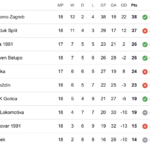Unions are not happy will speculations that workers might have to work more.
Whether it was just an April Fools’ joke or a serious announcement, the official postponement of negotiations between the government and the trade unions on Friday was accompanied by an unofficial announcement about the extension of work day to nine hours, which came from people around Deputy Prime Minister Božo Petrov. This would mean that the current paid half-hour break would be turned into an unpaid one-hour break, so the business day for most employees would last from 8 am to 5 pm, reports Večernji List on April 2, 2016.
The unions have immediately voiced their strong disagreement, while employers gather in the Croatian Employers Union have been rather restrained, even though they have been demanding similar changes for years. Such a change would require the amendments to the Law on Labour, but so far the government did not mention the possibility of changing that law. Perhaps it is just a threat to union representatives who demand a six percent raise that, if they were to persist in their demands, other issues could be opened, from lay-offs in the public sector to the abolition of the paid half-hour break.
“This is the first time I hear about it”, said Prime Minister Orešković, while First Deputy Prime Minister Karamarko said: “At this time, we are not thinking about it, and Europe is going towards reducing working hours.” A nine-hour work day was allegedly a surprise for Administration Minister Dubravka Jurlina Alibegović, but she did not explicitly deny it. Former Labour Minister Mirando Mrsić sees here an intention of the new government to change the Law on Labour, since that is the only way provisions about the break can be changed.
“If these reports are correct, it will not be difficult for unions to invite the public to come to the streets and protest against the government which wants to institute such a change”, said Krešimir Sever, one of union leaders.
“We have our own traditions, we must not imitate everything that is happening in the western countries. Our people have a lot of overtime hours and they do not get paid”, said union leader Vilim Ribić. He added that they would wait for some time so that new ministers and the government can “get their head around elementary things” before they decide to use courts to get their six percent pay raise.







